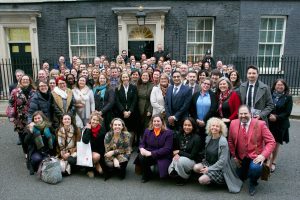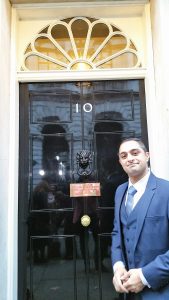The Integrity Accountancy 10 Top Tips for SME’s, on accounting, finance and tax.
We at Integrity Accountancy enjoy working with micro, small and medium sized enterprises, as they are the lifeblood of the UK economy and the value that we bring when we work with SME’s has a huge positive effect on their businesses. And hence to continue to support SME’s, so have published our 10 Top Tips on accounting, finance and tax.
Top Tip No. 1 – Choose the right company Structure
Choosing the right company structure is a really important decision required before the business commences trading. Company structures in Sole Trader, Partnerships, Limited Liability Partnership, Community Interest Companies and Limited Companies, to name but a few. Focusing on Sole traders and Limited Companies, our recommendation is that if you plan on operating the business for the long term, then setup as a limited company. If you want simpler accounting and to manage the returns for the business yourself, then setup as a sole trader.
Top Tip No. 2 – Plan, plan and plan again
The better you can plan for your business, the better the business will be prepared for peak and troughs in trading. We recommend that business owners take at least 1 or 2 days per month, working on the business to review the past months performance and to plan ahead for the next year or 18 months. Please get in touch with us if you’d like a free cash flow spreadsheet to see when the business will have surplus cash or when there are likely to be pressures on cash.
Top Tip No. 3 – Cloud Accounting
In recent years, accounting software has evolved significantly, and this evolution has enable business owners to maintain their bookkeeping records quickly and efficiently. Cloud accounting also enables you to give access to professional trusted advisor, like us at Integrity Accountancy, real time access to your accounting records enabling business owners to access really good advice for their business. Plus cloud accounting software cheap and effective, with monthly payments reducing the need for a big investment in your accounting software.
Top Tip No. 4 – Meet Deadlines
When you run a business, always ensure that you submit annual accounts, corporation tax return and self-assessment tax returns before their deadlines. Also, if you owe tax, pay your tax before it comes due. This will ensure that you are up to date with a key creditor for all businesses, HMRC.
Top Tip No. 5 – Utilise Allowances
There are so many allowances available to business owners and businesses of all shapes and sizes, and these include the following:
Income Tax Allowance – £11,500
Dividend Allowance – £5,000
Mileage Allowance – 45p 1st 10,000 miles, 25p afterwards
Marriage Allowance – Partner earns less £11,500, save up to £230
Annual Investment Allowance – up to £200,000 invested in assets
R&D Tax Credits – reduce corporation tax by £130 on top of every £100 of qualifying costs
For many allowances, there are rules as to who they are available to and how they are used so always get professional advice if there is anything that you are unsure of.
Top Tip No. 6 – Claim for Travel & Subsistence
If you incur costs relating to travel and subsistence whilst working for your business, make sure that you claim these periodically (ideally monthly) from your business. These costs can include Air, Train, bus, and taxi fares, parking, the London congestion charge and tolls, subsistence expenses e.g. lunch while out, hotel and meals, if you need to stay away from home and mileage when using your own vehicle. Again, always get advice from an accountant to ensure that you are entitles to claim these costs.
Top Tip No. 7 – HMRC Workshops
HMRC does give some things away for free and their workshops are fantastic for business owners. There workshops cover topics such as:
• employer online filing and running a payroll
• becoming self-employed and self assessment for self-employed people
• Construction Industry Scheme
• setting up a limited company
• introduction to VAT
• introduction to international trade
They also have free payroll software to allow business to manage their own payroll and report their details directly to HMRC themselves.
Top Tip No. 8 – Budget for Tax
If you are a profitable business then you are almost certainly likely to have a tax liability, whether it is income tax and NI, corporation tax or VAT. So budget for the tax that you will owe to ensure that you have funds set aside for these liabilities. For most business we recommend setting aside between 20% and 30% of turnover in a separate business deposit account for when there is tax to pay.
Top Tip No. 9 – Claim Costs of working from Home
If you do work for your business from home, you can offset the costs of running your home against your business if you have a designated space in your home that you use solely for business purposes. There are a couple of method, the Flat Rate Method (simple) and the Costs Method (more detailed). The flat rate method enables you to be paid costs based on the number for hours that you work at home:
25-50 hours: £10 per month
51-100 hours: £18 per month
101 hours +: £26 per month
Top Tip No. 10 – Get a Good Accountant
Getting a good accountant for you and your business should be seen as being an investment in your business, and as with any investment, this should reap benefits for your business. When it comes to choosing an account, you should consider the following:
• Ask yourself if location matters
• Choose a certified or chartered accountant
• Look for an accountant with relevant expertise
• Talk to government and business associations
• Tap into your social networks
• Make use of your connections online
• Decide how the accounting work will be divided
• Get someone who’s proactive about saving you money
• Find out what software the accountant uses
• Do background checks
• Learn to use and trust your intuition
This is just a guide and if you’d like any further details, please contact us on 0121 777 5361, to book a free, no obligation meeting with us, where we can give you advise and assistance that is relevant to you and your business.
About the Author – Shohaib Shafiq ACMA CGMA is the principal accountant at Integrity Accountancy Services Limited. Integrity Accountancy specialise in working with SME’s that want accountants that do more than just tax returns. They work as a businesses trusted adviser, working to add value to their clients, by providing a proactive accountancy service
http://www.integrityaccountancy.com
enquiries@integrityaccountancy.com
Facebook: @IntegrityAccountancyServices
Twitter: @IntegAccount






